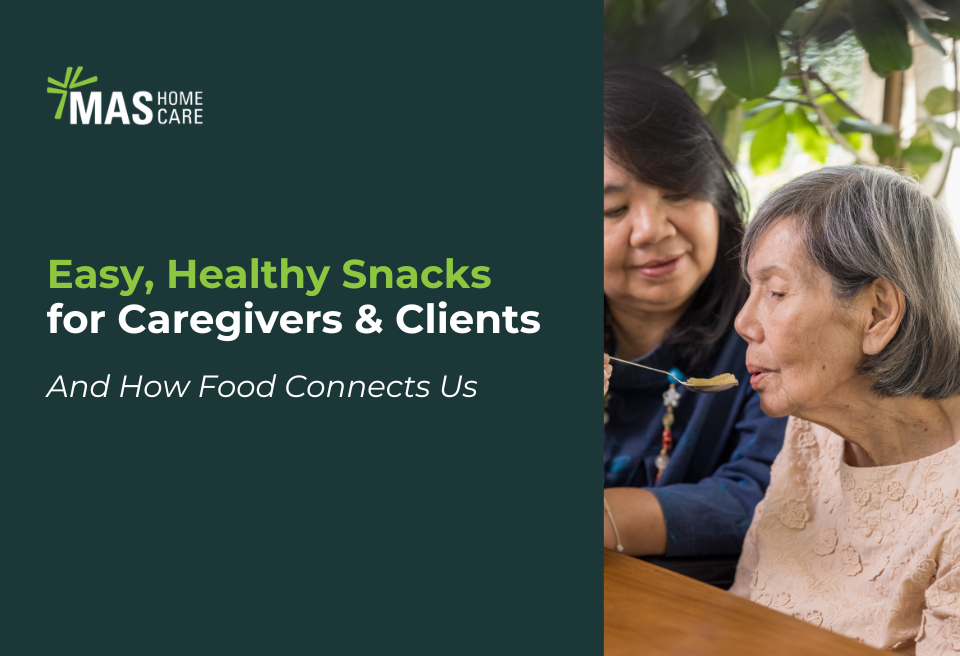Home Care Blog
5 Things to Look Out for When Visiting Your Parents This Holiday Season
 “There’s no place like home for the holidays.” This season families are reuniting and getting to spend the quality time together that they miss out on during the rest of the hectic year. Many adults have moved away to another city or state than their parents over the years and see them less frequently than they would like to. This can make the holidays even more special.
“There’s no place like home for the holidays.” This season families are reuniting and getting to spend the quality time together that they miss out on during the rest of the hectic year. Many adults have moved away to another city or state than their parents over the years and see them less frequently than they would like to. This can make the holidays even more special.
We wish everyone a joyous and festive holiday, but we would also like share some things you should keep an eye out for while visiting your parents. If you have a few days to spare, you will probably get the chance to get in a good amount of observations regarding their health and safety. It can be a good time to have a serious conversation about their long-term care wishes. You might even have some extra time to address a few hazards around the house for them. If time is limited, take notes and contact someone who can get the job done. In the event that health and personal care are a concern, MAS Home Care is more than happy to provide a capable caregiver that can meet your loved ones needs in your absence. With locations in Maine, New Hampshire and Rhode Island, New England residents are sure to find extra assistance in their area.
Without further delay, here are five things to look out for when visiting your parents this holiday season:
- Home Safety. Unintentional falls are a danger all seniors should be careful of. What can cause a bump or bruise in a younger person may lead to broken bones or even death in the elderly. Having a safe home can help prevent unnecessary hospitalizations. Consider getting a medical alert system for your parents. Make sure all traffic areas are free of clutter, wires and scatter rugs that may trip them. If you notice it is difficult for them to navigate around large furniture, offer to help them do some “re-decorating” while you’re there. Everything should be within easy reach and hallways and rooms should be well lit. Click here for 25 more home safety tips from MAS Home Care.
- Healthy Diet. Elderly people can be at a higher risk for malnutrition. They may be unable to use kitchen appliances due to mobility problems, have a lack of appetite due to depression or medication, have oral problems that make eating painful, or any other numerous reasons they are not eating properly. Check the fridge and take a glance at their plate when you are eating together. Are they eating enough? Are the foods they are choosing nutritious? Also check expiration dates to make sure they are not eating expired foods which can cause illness.
- Cleanliness. Everyone keeps up their home and appearance differently. Some are more meticulous than others. The problem is when the level of cleanliness is below their usual standard. If dirty dishes are piling up, food is going bad, or you see mom wearing the same clothing multiple days in a row then that should raise some concerns. The next question to ask is: Is it a physical inability to do these chores or is a mental or emotional problem?
- Forgetfulness. There are many hidden signs you can look out for to see if your parent’s memory isn’t what it used to be. Unpaid bills and multiple missed appointments are some. You might also notice several burned pots and pans or clothes. This could mean they are frequently forgetting to turn off the stove or iron. A conversation about recent events can also help reveal memory loss.
- Signs of Alzheimer’s. Although the previous points may be signs of the onset of dementia or Alzheimer’s disease, they may not be. There are many reasons for new behaviors that are arising in your parents. If you do suspect dementia, think about the following signs as well and let your parent’s doctor know what you have witnessed: They have trouble working with simple numbers, it is difficult for them to complete familiar routines, they lose track of time (including the year), they’ve been losing a lot of things lately, and their judgment is slipping. They may also have trouble with vision, speaking, and writing. A drastic mood change may also be apparent. Click here for 9 more warning signs of Alzheimer’s.
Everyone wants their loved ones to be happy, healthy and independent. By keeping an eye out for some issues they may be experiencing, you can help them to correct the problem or seek appropriate help. It may be the best gift you give them this season.
